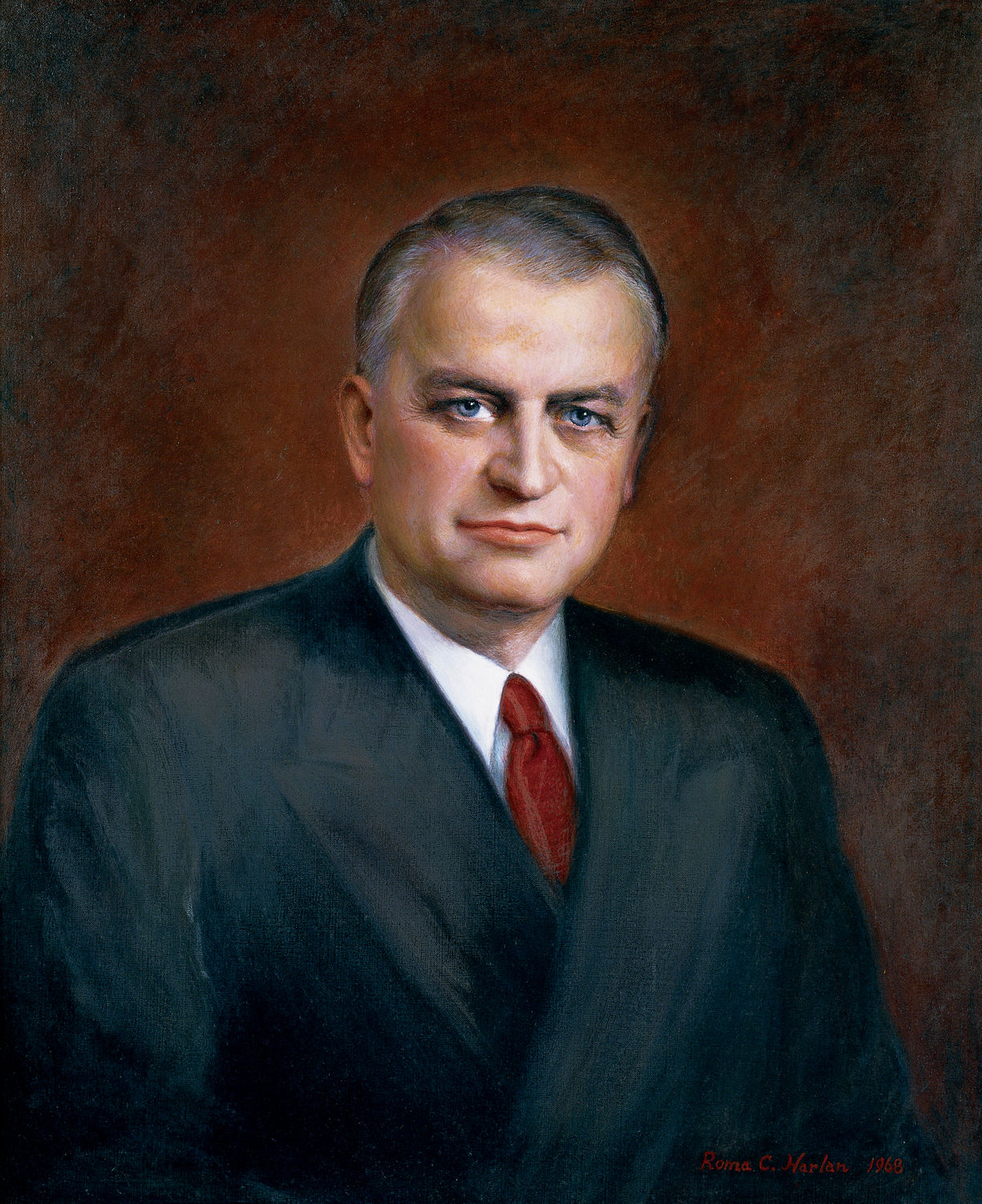
| Title | Kenneth S. Wherry |
| Artist/Maker | Roma Christine Harlan ( 1912 - 2003 ) |
| Date | 1968 |
| Medium | Oil on canvas |
| Dimensions | Sight: h. 28.5 x w. 24.5 in. (h. 72.39 x w. 62.23 cm)
Framed: h. 36.5 x w. 31.5 in. (h. 92.71 x w. 80.01 cm) |
| Credit Line | U.S. Senate Collection |
| Accession Number | 32.00027.000 |
Artist Roma Harlan completed this posthumous portrait of Kenneth Wherry for his family in 1968. The work was on loan to the Capitol office of the Republican leader of the Senate until 1990. At that time, Marilynn Latta and David Wherry, daughter and son of the senator, donated the portrait to the U.S. Senate Collection.
Roma Harlan began painting at the age of five under the influence of her mother, also a portrait painter. After training at the Art Institute of Chicago, Harlan became resident portrait painter for the Lake Shore Club of Chicago. She later relocated to Washington, D.C., where she worked in the offices of the National Gallery of Art while continuing her painting career. Among Harlan’s many portrait subjects are military leaders, politicians, and educators. These include Senator Edward Martin of Pennsylvania; Rear Admiral Albert Cushing Read, a pioneer aviator; and Judge Burnita Shelton Matthews, the first woman to serve as a federal district judge.
Kenneth Spicer Wherry, a U.S. senator from Nebraska, had a colorful and varied career in business before shifting his energy to politics in 1927. Born in Liberty, Nebraska, he practiced law and at various times ran the family furniture and automobile businesses. He also became a mortician, cattleman, and farm implements salesman.
Wherry served simultaneously as the mayor of Pawnee City and as a member of the Nebraska state senate; later he became western director for the Republican National Committee. In 1942 Wherry defeated incumbent George Norris for a seat in the U.S. Senate. There, Wherry distinguished himself by sponsoring legislation to change the line of presidential succession, placing the Speaker of the House and president pro tempore of the Senate before presidential cabinet members. Wherry persistently advocated flood control and irrigation projects, supported a strong air force, and defended General Douglas MacArthur during his confrontations with the Truman administration. Elected Republican whip in 1944, just two years after his arrival in the Senate, Wherry was instrumental in the movement to broaden the Senate's cloture rules to limit filibusters. According to fellow Republican Robert Taft, Wherry was a "good salesman," having carried his gift of persuasiveness with him from his business career. Wherry acted frequently as party leader during the illness of Majority Leader Wallace White, later serving as Republican leader in his own right. He died in office in 1951.